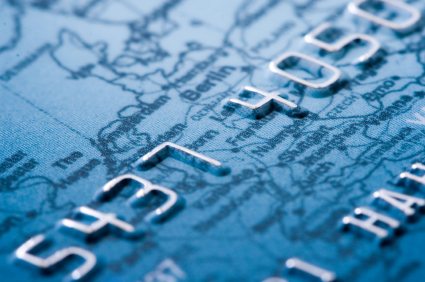It often seems that credit card issuers love fees as much as cardholders hate them.
There are annual fees, late payment fees, balance transfer fees, and cash advance fees. Yet all of these credit card fees are somewhat defensible, compared to a bizarre charge called the foreign transaction fee.
A foreign transaction fee is a charge levied by a credit card issuer on all charges processed outside of the United States.This fee is issued as a percentage of the transaction and is added on to the cardholder’s balance.
Most credit cards have this fee, although a growing number are beginning to eliminate it. Cards that still have a foreign transaction fee typically charge 3% of the amount purchased, although most American Express cards charge 2.7%.
Surprising ways the fee is charged
Obviously, someone using a credit card that imposes a foreign transaction fee would expect it to be added when traveling to a foreign country and paying in the local currency. And yet, this fee can even be charged when making purchases in U.S. dollars.
The important distinction to understand is that this fee is not a foreign currency conversion fee, it is a charge imposed on any transaction that is processed outside of the United States, regardless of the currency.
Many credit card users have even been charged this fee on transactions made from home, in U.S. dollars, over the telephone or online.
For example, if you were to purchase airline tickets from a foreign carrier, and that company processes your payments outside of the United States, you could incur that fee. Even a company based in Canada might use a local credit card processor to complete your order.
These fees are completely unjustified and represent pure profit, since banks already receive the most favorable interbank exchange rates.
According to a New York Times story, courts have determined processing a foreign transaction boils down to a task of performing simple arithmetic.
How to avoid foreign transaction fees
The easiest way to avoid foreign transaction fees is to have at least one credit card without these charges for use when making purchases processed outside of the United States.
[pull_quote align=”left”]Most credit card issuers now feature at least one product, typically a travel rewards card, that has no foreign transaction fees.[/pull_quote]Fortunately, several major credit card issuers have not eliminated these charges on all of their products. These issuers include Capital One, Discover, and the Pentagon Federal credit union, or PenFed. Chase now waives these card fees for most of their products aimed at travelers.
Most other credit card issuers now feature at least one product, typically a travel rewards card, that has no foreign transaction fees.
But if you were charged foreign transaction fees, you may still be able to have them waived. Banks are very sensitive about this issue, which has been the subject of recent litigation.
Many credit card holders have reported that their bank will waive these fees upon request by cardholders.
There is no legitimate reason for a bank to add 3% to your charge, just because it was processed outside the United States. By understanding what these fees are, and how to avoid them, you can participate in the global economy without being penalized.




